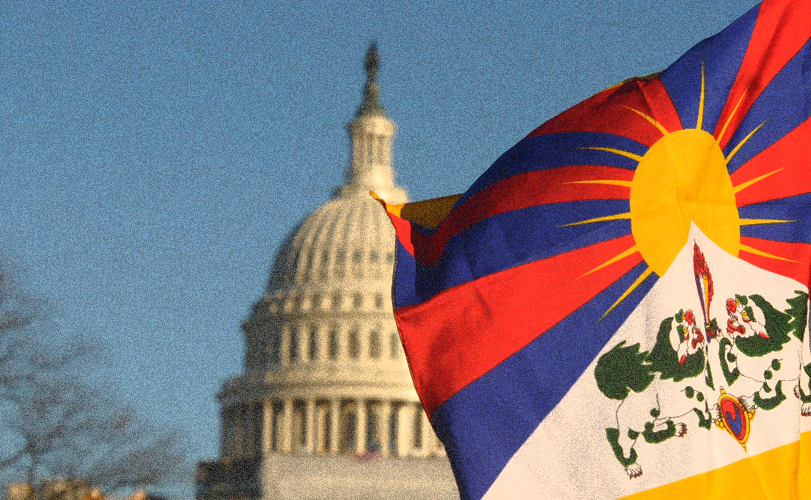(TibetanReview.net, Dec31’20) – In the wake of media reports highlighting President Donald Trump’s signing into law of a Tibetan Policy and Support Act on Dec 27, China has warned India against any possible move to follow suit.
The Act stipulates that Chinese interference in the selection of the Dalai Lama’s successor will be perceived as a violation of Tibetan religious freedom, allowing the American government to place economic and visa sanctions on the Chinese officials involved. The act also states that China cannot establish a new consular office in the US until Washington is permitted to establish an office in the Tibetan capital of Lhasa.
Apart from these, the Act deals with policy regarding the environment and water resources on the Tibetan Plateau. It states that the US would encourage a regional framework on water security among riparian countries, which has direct implications for India in the wake of China’s recently declared plans to build a super dam on Tibet’s Yarlung Tsangpo that would be even bigger than the Three Gorges Dam in China. The river is known as the Brahmaputra in India.
Outlining Beijing’s position on the Tibetan Policy and Support Act of 2020, the Chinese embassy in New Delhi has accused the Indian media of supporting the US legislation and “advocating Indian interference in China’s Tibet (Xizang) affairs”.
Embassy spokesperson Ji Rong demanded “an objective and fair stance” on the “highly sensitive nature” of Tibet-related issues and what he has called China’s territorial integrity.
“We hope some Indian media take an objective and fair stance on issues concerning China’s sovereignty and territorial integrity, grasp the highly sensitive nature of Xizang-related issues, look at Xizang’s economic and social progress objectively, do more to help China-India bilateral relations move forward instead of advocating playing ‘Tibet card’ to meddle in China’s internal affairs and further damage the bilateral relations,” Ji has said.
Ji has brought up the “Declaration on Principles for Relations and Comprehensive Cooperation” signed by India and China in 2003 and pointed out that in it New Delhi had recognised Tibet Autonomous Region as part of Chinese territory, and didn’t allow Tibetans to engage in political activities against China.
“It is in the fundamental interests of China and India… to enhance political mutual trust, properly manage differences, and strive to return China-India relations to the track of healthy and stable development,” Ji has said.
She has claimed that the US legislation “maliciously distorts [Tibet’s] social development, makes groundless accusations, denigrates China’s ethnic and religious policies, and interferes in the normal reincarnation procedure of living Buddhas under the pretext of human rights and religion”.
She has further contended that the “real purpose of the act is to undermine Xizang’s prosperity and stability” and that the legislation “grossly interferes in China’s internal affairs and gravely violates the fundamental principles of international laws”.
While India officially consider Tibet to be part of China, many of its leaders, including former Prime Minister Indira Gandhi, privately considered the latter’s annexation of the former illegal, as revealed in a recent book by the China-friendly BJP leader Dr Subramanian Swamy.
Similar view was expressed by former British Prime Minister Margaret Thatcher in her book after she left office.






